Everything You Need To Know About THCV
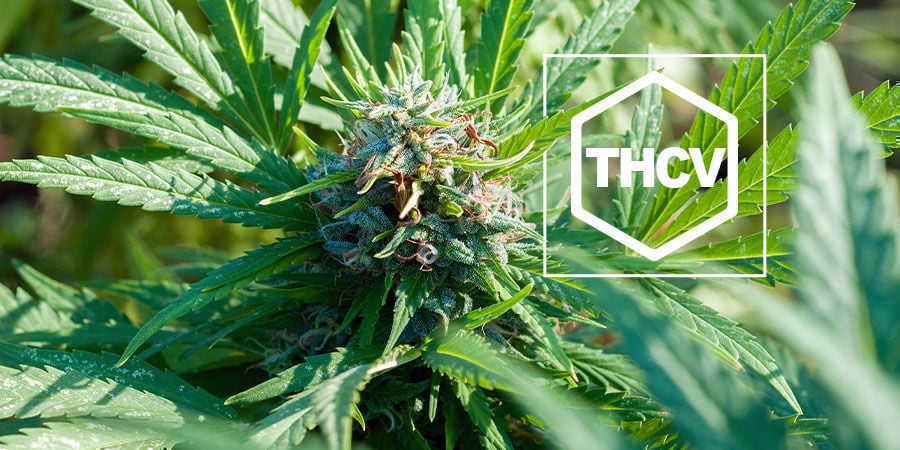
Cannabis contains much more than just THC. THCV, for example, is a secondary cannabinoid that's attracting a lot of attention due to its potential wellness benefits. Keep reading to learn more about THCV and the limited research on this novel cannabinoid.
THCV is a unique cannabinoid that is entering the limelight in the form of vapes and oils. But what does it have to offer? Read on to learn more about this biphasic compound. Cannabinoid research has been conducted for decades, but it has only recently intensified as cannabis has become legal in more countries. Along with better-known cannabinoids like THC and CBD, the lesser-known THCV has started gaining traction. Although distinct from THC, it has a little psychoactive touch of its own, and could play a strong role in supporting holistic wellness. Let's take a closer look at THCV to see what's so special about it.
What is tetrahydrocannabivarin (THCV)?
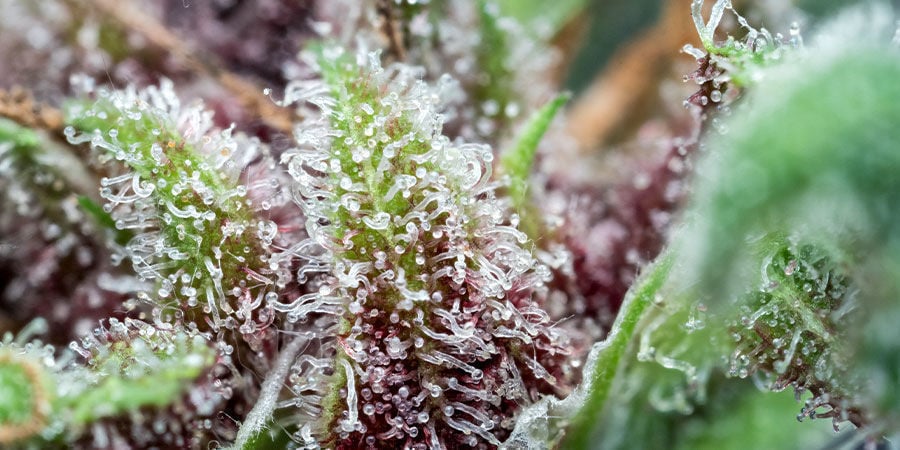
THCV (or tetrahydrocannabivarin) is like other cannabinoids in that it is produced in the trichomes of the cannabis plant. THCV first begins as the precursor cannabinoid CBGV-A (or cannabigerovarinic acid). With the help of enzymes present in cannabis trichomes, CBGV-A is converted into THCV-A (tetrahydrocannabivarinic acid) and other cannabinoids. The last step needed to turn THCV-A into THCV is a process called decarboxylation, which involves applying heat to cannabinoids. That process, simply enough, happens when cannabis is smoked, vaped, or baked into cannabutter.
THCV has several peculiar characteristics that make it stand out from other cannabinoids. Namely, it has some of the psychoactive effects of THC (most other cannabinoids do not) but is distinct enough to be worthwhile in its own right.
THCV vs THC
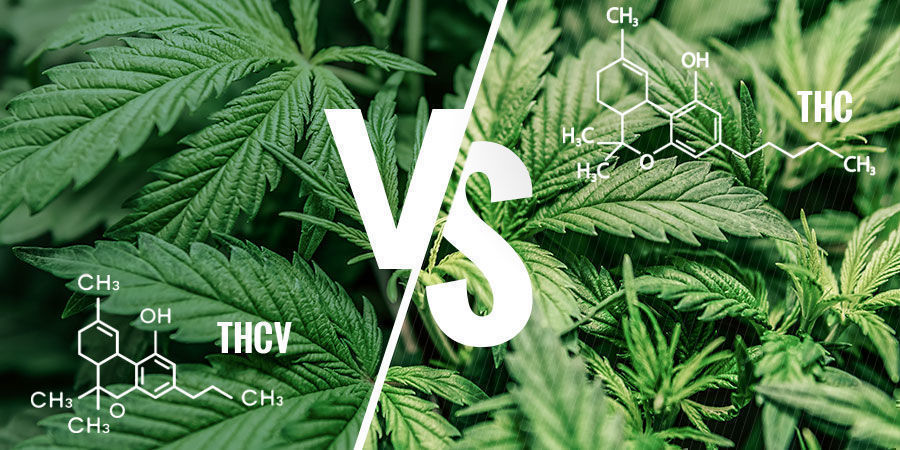
Given the similarity in name, some may wonder if there’s even a difference between THC and THCV. Chemically, the two differ only slightly; THCV has a 3-carbon side chain, while THC has a 5-carbon side chain in the same location of the molecule. Both cannabinoids, however, share similar components (Radwa, Chandra, Gul, & ElSohly, 2021). Despite having that in common, there are some profound differences between THCV and THC:
- The high produced by THCV is described as stimulating and more clear-headed than that of THC. It is, however, not as long-lasting. Some believe THCV only achieves its effects by influencing the effects of THC. Specifically, THCV is thought to "take the edge off" of THC.
- THCV is believed to suppress the appetite, while THC is widely known to stimulate appetite. This makes it potentially useful as a weight management option, but the science on this is still limited (see "THCV and the endocannabinoid system").
- THCV has a boiling point of 220°C, while the boiling point of THC is 158°C. This is important to know if you’re vaping a THCV-rich strain.
What does THCV do in the body?

We’ve known about cannabinoids for some time, but it wasn’t until the 1980s that we really began to learn how different cannabinoids work in the human body. With the discovery of innate cannabinoid receptors and the binding compounds that make up the endocannabinoid system, researchers could finally make headway regarding the physiological effects of many cannabinoids.
Specifically, the endocannabinoid system regulates important bodily functions including immunity, sleep, mood, pain, and more. The body produces its own cannabinoids ("endocannabinoids") that bind to these receptors, known simply as CB1 and CB2. Some cannabinoids from the cannabis plant, as it turns out, can bind to these receptors as well. In doing so, they can cause profound alterations in physiological functions. THC, for example, binds to CB1 receptors in the brain, which is how it produces its characteristic high.
THCV and the endocannabinoid system
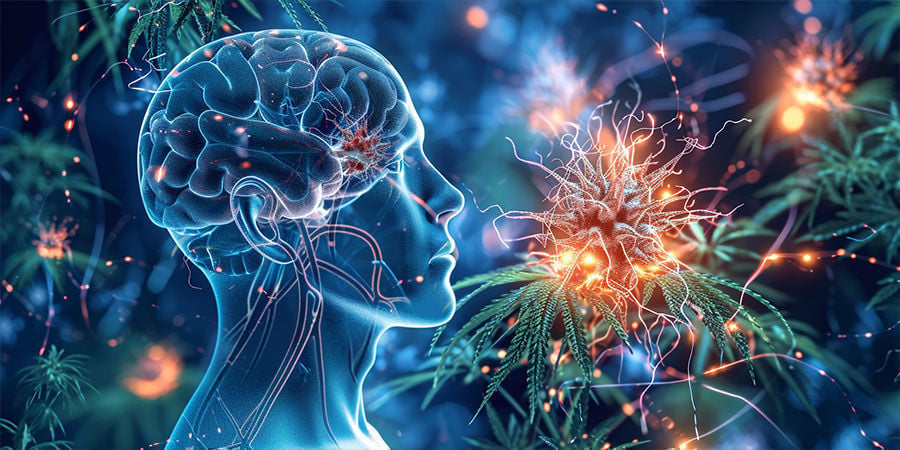
Despite being discovered back in 1973, THCV is one of the less talked-about cannabinoids. Very little research has been conducted on it, and unlike THC or CBD, it isn’t mentioned much in mainstream discussion. In fact, THCV has only recently amassed attention thanks to the cannabis industry boom.
In laboratory studies, it appears THCV acts as a CB1 receptor antagonist at low doses. That, in short, means it inhibits the effects of THC—a quality it seems to share with CBD. At higher doses, however, it acts as an agonist of the same receptor, producing effects similar to THC in turn. In other words, THCV can either increase or decrease the intoxicating effects of cannabis, depending on the dose.
Through it's unique mechanism of action, research is looking to determine if THCV could have potential in the following areas:
- Appetite suppression: THC can be very effective at stimulating hunger (anyone who's experienced "the munchies" can definitely attest to that). However, research suggests that THCV may have the opposite effect, suppressing appetite rather than stimulating it (Abioye A et al., 2020).
- Mood regulation: THCV has been observed to produce a soothing effect that helps when feeling agitated and nervous. Research suggests that this is because THCV can enhance the activation of 5-HT1A receptors in the brain (Marek et al., 2010), which play an important role in mood regulation.
Other studies are being conducted to see if THCV can benefit physical health as well, but they’re in very early stages. As more of that research comes out, we’re sure THCV’s future will look even brighter.
Does THCV get you high?

As mentioned, the effects of THCV depend on the dose. So indeed, if you take higher doses, you’ll experience a pleasant high. As the high from THCV is stimulating and more clear-headed than the high from THC, the former can be a great alternative during the day when you still want to function while enjoying a nice buzz. THCV may also amplify some aspects of the THC high, such as euphoria and mental stimulation. It’s also been shown to counteract the unwanted stress, anxiety, or paranoia brought on by using too much THC.
As mentioned earlier, the THCV high doesn’t give you the “munchies”, either. This can be a welcome effect for consumers who are looking to manage their weight. On the other hand, it makes cannabis strains with THCV less suitable for people with certain eating issues. Lastly, it’s worth noting that the high from THCV is believed to have a faster onset, but lasts about half as long as THC. This makes THCV-rich cannabis strains perfect for people who want a briefer experience.
What's the best way to take THCV?

THCV is a secondary cannabinoid that's usually present in only trace amounts in some cannabis strains. Some companies, however, produce edibles and chews/gummies made with cannabis extract rich in THCV. We recommend using these products for a more accurate representation of THCV and its effects.
Is THCV legal?
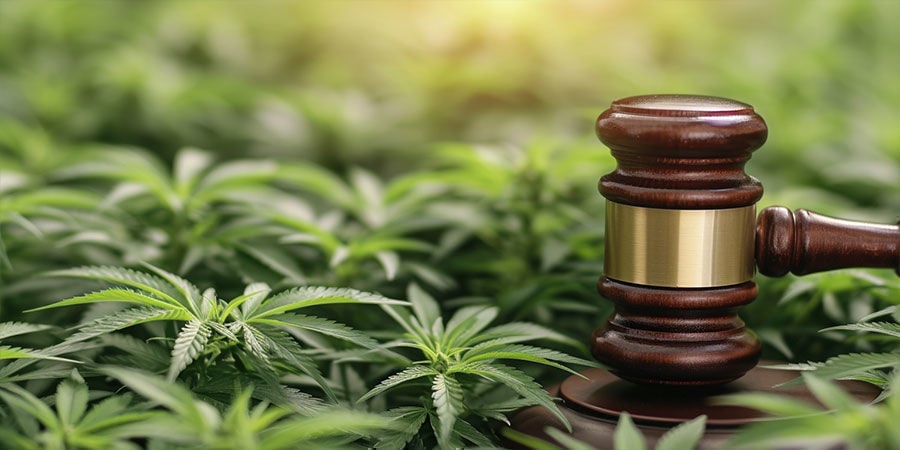
The legality of cannabinoids varies greatly from one region to another, as federal and even state governments have varying definitions of cannabis, as well as unique ways of distinguishing its main constituents. In the US, for example, THCV is legal federally, as long as it is produced from industrial hemp. THC, on the other hand, is not. If you're interested in trying THCV, always consult your local laws first.
THCV: An upcoming cannabinoid
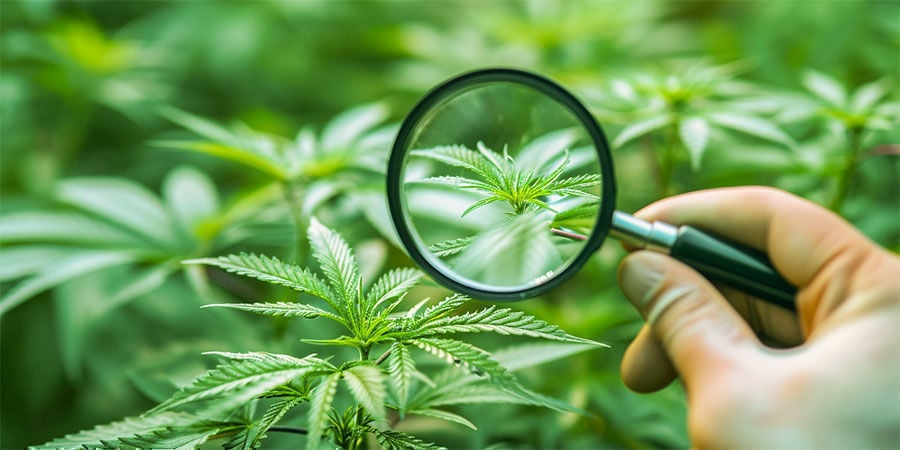
THCV is a unique cannabinoid found in trace amounts in some modern cannabis strains. Research suggests that it may produce some psychoactive effects, though not as strong or long-lasting as those of THC. Research into this novel cannabinoid also suggests that it may have wellness health benefits, though more research is needed to really understand the scope of its effects in the human body.





 United States
United States











